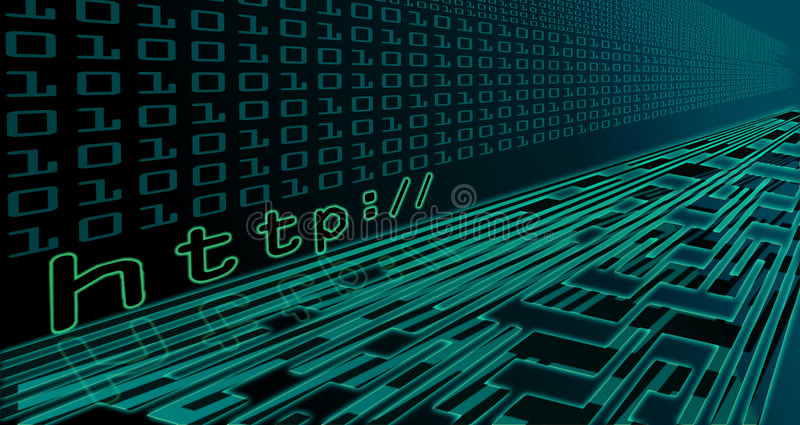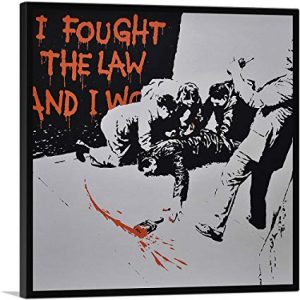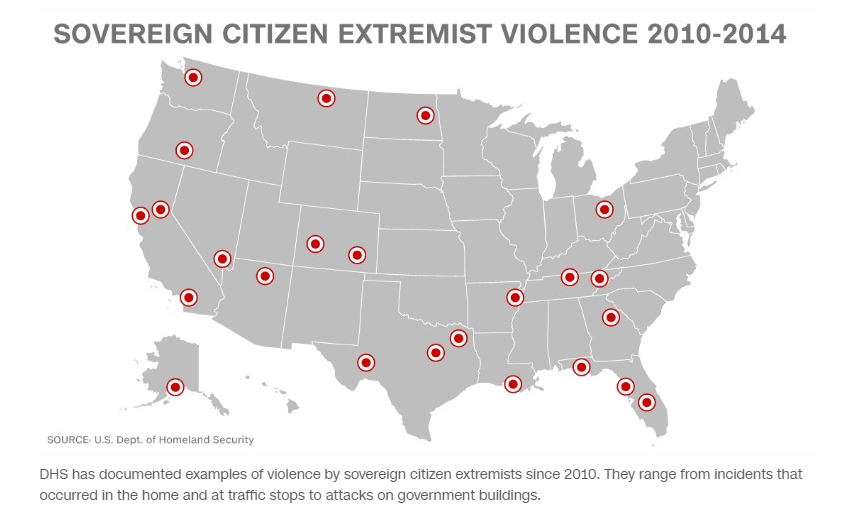
How the Internet is Fueling Extremism in America
The Internet has made it possible for nearly anyone to have a voice, which is something I wouldn’t want to take away. Like any advancement, be it technological or otherwise, this comes at a price. On the one hand, thought & speech are democratized when everyone has their own soapbox, while on the other, this freedom makes it easier than ever to distort information and ultimately manipulate the public.
This outcome is indeed ironic. I was rather young at the time but as the Internet was first emerging, the most hopeful apologists attributed this development in technology to the rising tide that would raise all levels of knowledge. Seeing it now as an adult (a questionable assertion at best), we seem to have grown stupider despite having access to the world’s knowledge at our fingertips.
A perfect case in point is the life of James Randi, a featured subject of this blog’s Hero’s section. Mr. Randi has dedicated his life to exposing psychic frauds and “paranormal” mind readers. It wouldn’t be a leap of faith to assume that his exposure of these phonies would be enough to eliminate them like an effective vaccine, yet during a recent trip to my home town, I was surprised to see at least 3 new psychic / tarot card storefronts pop up since I had last visited. The lesson here is that it takes far more than simply making the information available to eradicate bad ideas, something I expound upon further in this discussion of Sovereign Citizens.
Our Changing Attitudes Towards Police & Law Enforcement

Attitudes toward law enforcement have changed as Internet access has become ubiquitous. It’s important to understand the long term consequences of these changes.
The reason we are now flooded with more and more click-bait style news is that social media platforms quickly learned it can be lucrative to promote stories that trigger people’s emotions. Because of this situation, over the past decade especially, we’ve been delivered a very biased perspective as it relates to police officers. For example, a positive story about a heroic police officer saving someone’s life will resound in the local community, taking up several days of headlines. It’s important to note that such a story won’t go viral.
Granted, the officer in my hypothetical example was just doing their job, yet I think it’s fair to say many police officers choose this line of work out of some sense of honor or duty. A nice pension helps but far less risky government jobs offer similar benefits. With the idea of honor at the forefront, one of the greatest rewards for a police officer would be to featured in the media as a hero. I’d even hazard a guess that many police officers would take such recognition over money. On a similar point, I think any soldier in a comparable scenario would also agree to that prior statement.
In 2018 though, what will go viral is not the local hero story, rather an incident involving a police officer who oversteps the line; and this is not something I am arguing against, it should be exposed. I am a strong advocate of bodycams, for example, as I think they offer far more transparency to both sides of the situation.
Getting back to the main issue, the problem facing the world is that we are being exposed less and less to the mediocre in exchange for the sensational. It’s starting to become a situation where the Weekly World News you see at the checkout counter was, in fact, the mainstream news.
How Brainwashing Happens
Because youth in particular consume more and more of their media in the form of social feeds found on Facebook and Twitter, a re-indoctrination is happening. Cops are being viewed far less like a bumbling Chief Wiggum and increasingly as some a type of sinister enemy, an enemy who is definitely not on your side.
It’s important to highlight that I have nothing against criticizing the police force, especially in cases of abuse. I’ll also mention that ridicule or jest toward the police goes back a long time, consider the Barney Fife character (RIP Don Knotts, loved you in Three’s Company). I find nothing wrong with a healthy criticism and even poking fun at the police force, it’s an easy target and I’d say part of human nature. What I don’t approve of, though, is the more sinister and evil portrayals that are starting to emerge.
The ever increasing demonization of the police force leads to one of the more tragic byproducts of the Internet. With so much information now available to society, it is a natural human tendency to make leaping assumptions. Consider, for example, that when a tsunami takes the lives of 10,000 people, society views the headline and rightfully declares it a tragedy. Rarely, though, does someone sit down to think how many people actually perished from that event. As a simple thought experiment, try counting to 10,000, imagining a new face for every single number, or go through your friends list on Facebook, mentally noting how many faces you’ve scrolled through until you get to 2,000 or even 4,000. Only then can you truly fathom the gravity of such a tragedy. But when you can just scroll to the next headline in your news feed, why would you bother dwelling on what actually happened?
Now, with this reasoning in mind, when sources of media deliver constant negative news surrounding police officers, it is very easy to make the leaping assumption that all cops are bad. We cannot mentally fathom how many officers are currently on duty throughout the United States no better than the tsunami victims in my example, so it becomes easier to process the information by assigning it some type of association: all cops are bad, a priests are pedophiles, politicians are always corrupt, etc. Couple that with a negative personal experience (perhaps getting pulled over when speeding) and it further crystallizes the opinion. Viola, the brainwashing is complete.
Who Are Sovereign Citizens? What Motivates Sovereign Citizens?

Unlike the chorus to this catchy punk song, few, if any, Sovereign Citizens come out as winners when interacting with law enforcement.
A result of this media mis/disinformation syndrome is the so called Sovereign Citizen Movement, something I feel compelled to share my opinion about. Sovereign citizens represent one of the dangerous byproducts of the Internet, in something I refer to as psuedo-intelligence: through questionable sources of information found on the Internet, so-called sovereign citizens feel empowered enough to consider themselves overnight legal experts. Their confidence comes from the profound belief that they’ve found some loophole in the system that nobody has discovered, affording them real-life “get out of jail for free” cards. And in case you are questioning whether sovereign citizens are for real, you’ll find plenty of ridiculous videos in the links to follow.
The source of the information used by these “sovereign citizens” is unclear although patterns can be found. In many cases they will declare that they are part of a corporation or travelling in a vessel, in the belief that this mere word play is enough to get them off the hook. Sovereign citizens often assert that their name is only how the state recognizes them, but in reality they are called something else. In some misconceived viewpoint of a stalemate, they somehow feel they can stall the police officer’s work by refusing to answer questions or turning the table on the officer. This latter technique is also used most commonly in the subsequent court hearings they attend. It’s quite evident sovereign citizens can afford to clog our court system because they have no other pressing responsibilities 🙂
In one of the most egregious cases, an incredibly patient officer gave a woman more chances than she deserved to exit a vehicle that was going to be towed due to the driver’s suspended license. She left the officer no choice but to force her out of the car and when he had to cuff her she screamed rape among other obscenities to the officer.
If you’ve gone this far, you really should watch the video to understand why I am spending my Saturday writing about sovereign citizens. Most of these videos are entertaining, but this video in particular shows something happening in our society that we must begin paying attention to. I’ve seen increasing examples of adults playing the victimization card when they don’t get their way, which is no different than a baby having a temper tantrum. This woman (she deserves to be called something else but I won’t go to her level), should publicly apologize to all victims of rape for the accusations made during her arrest. She is an example of this boy-who-cried-wolfism that is plaguing our society. Her cries of rape are a complete and utter disservice to rape and assault victims both past and present.
Documented Disillusion (And it’s An Accurate Assumption, I Absolutely Adore Alliteration)
Despite repeated failures, we know about these interactions because sovereign citizens film the entire situation, apparently as part of the evidence they’ll use in court. The fact these encounters are filmed in spite of the ineffectiveness of the techniques is the most clear demonstration of the intelligence level of these sovereign citizens.
Having watched many of these encounters, in most cases the citizens are being stopped for relatively innocuous offenses: driving without a license plate, expired registration, no driver license, or narcotics possessions. In what would normally be a slap on the wrist or small fine by a lenient officer slowly propels into something larger as the sovereign citizen quotes legal non-sense, refuses to provide basic information or responds to the officer with their own questioning.
It’s evident that in most cases these “experts” never practiced their material beforehand, making them appear even more ridiculous during its application. The many interactions I’ve watched on YouTube rarely end in a positive outcome for either side because the non-compliance of basic requests force the hand of the officers. They must resort to extreme situations like smashing the car window of the suspect or detention by pulling them out of their car.
No doubt there are a certain percentage of police officers who live for such encounters yet it’s not a leap to assume most of the police force would prefer the path of least resistance. There is no better proof than the many videos which highlight the reluctance of the officers to escalate until they have been left with no choice. It’s helpful to consider the perspective of the police officer in these encounters. An escalation by the officer leads to a greater risk of physical harm, even mortality, far more paperwork, the need for backup to handle the situation, and additional resources such as medical.
An interesting and ironic result of these many self-filmed encounters with the police is the overwhelming patience of the many officers who got stuck dealing with a sovereign citizen. I’d challenge anyone who believes that all cops are evil to cycle through some of these videos for ample evidence against such a claim. Granted, many of the officers knew they are being filmed, but many didn’t.
In the videos I’ve seen, the majority of the officers had every right to blow their lid with these imbeciles yet they remained calm and collected. Does this represent all officers? No, of course not. Bear in mind though, that it’s the so called sovereign citizens themselves who are sharing these videos as proof that they were being victimized! Yet time and time again we see the police officers following routine, offering the suspect chances and ultimately being forced into a difficult situation after all options have been exhausted. In short, the foolishness and stupidity of the sovereign citizens are reflected directly at them, after all, why would they share a video of their failure to the world? Furthermore, we are only seeing the videos presented to us on YouTube, just imagine how many encounters never made it to the public sphere!
What Can We Do About The Sovereign Citizen Movement?
Sovereign citizens are most likely small in number, but to assume they are harmless is a wrong and dangerous assumption. As an example, consider one extreme case of sovereign citizen outage that ultimately led to multiple fatalities. The ignorance surrounding the thinking of sovereign citizens squanders valuable resources as police backup must often be called in order to properly handle their stubbornness – that’s your tax money at work. In addition, the draining of resources to handle these imbeciles also thins police coverage for the actual crimes that may be happening at any given time. Finally, sovereign citizens abuse their rights to a fair trial by burdening the court system. In some cases they have been reported to physically “spam” the court with hundreds of papers in an attempt to delay the process; other video examples show the stalling tactics employed in the court itself. Sadly, most cases involving sovereign citizens are minor infractions that almost always can be dealt with by paying a small fine or penalty.
Earlier, I mentioned that I’ve seen more psychic and tarot card shops pop up in my hometown and this is despite the wealth of contrary information found on the Internet. The same logic applies to sovereign citizens. It’s unfortunate this type of brainwashing exists but it’s something we as a society have to accept. This begs the question, what can we do about sovereign citizens? Furthermore, is there anything we can do to prevent more sovereign citizens from forming or to stop sovereign citizens?
3 Ideas to Improve Education Regarding the Law & Its Enforcement
First, schools needs to teach children how to navigate the Internet. When I was a child we were introduced to libraries at a young age and taught how to look up books, where to find specific information, and how to reference sources. Our teachers obviously didn’t bring us to the magazine section of the 711 or supermarket to find information. It’s a silly example but in modern day times the Internet places both credible and sensation sources side by side. It’s a tougher task but if there is anything children can learn in school, it would be how to judge the difference between a legitimate and phony source of information on the Internet.
Secondly, and what appears more pressing, is that high school students must learn how the law works, especially as it relates to their rights as citizens. A good age for these lessons would be 15 or 16, which is around the time they start driving. This could be an excellent complement to a class related to government and history, since students can witness the culmination of our law in a real life example.
Finally, I feel grassroots are always the way to resolve larger issues, ie start small and work your way up. Before teenagers reach the age of legality, it would help for them to meet a member of local law enforcement in a classroom setting. As is often the case in life, much disinformation and hate can be dispelled after a physical meet up. This is why, after all, people are so mean to each other on Twitter or Facebook but far more respectful in real life. I think the same should apply to how young adults are exposed to law enforcement. As part of a general education curriculum, young students should know who the local law enforcement is, the purpose they serve, and how to properly behave around the police.
If there is any enemy in what we are up against, it is not in people themselves rather the ignorance that seduces them. I’m both marveled at the fact that the Internet allows me to reach such a wide audience yet saddened that it has to be about this kind of development. If this was your first exposure to the sovereign citizen movement, I hope you found this article helpful and would greatly appreciate your thoughts and feedback.

Leave a Reply